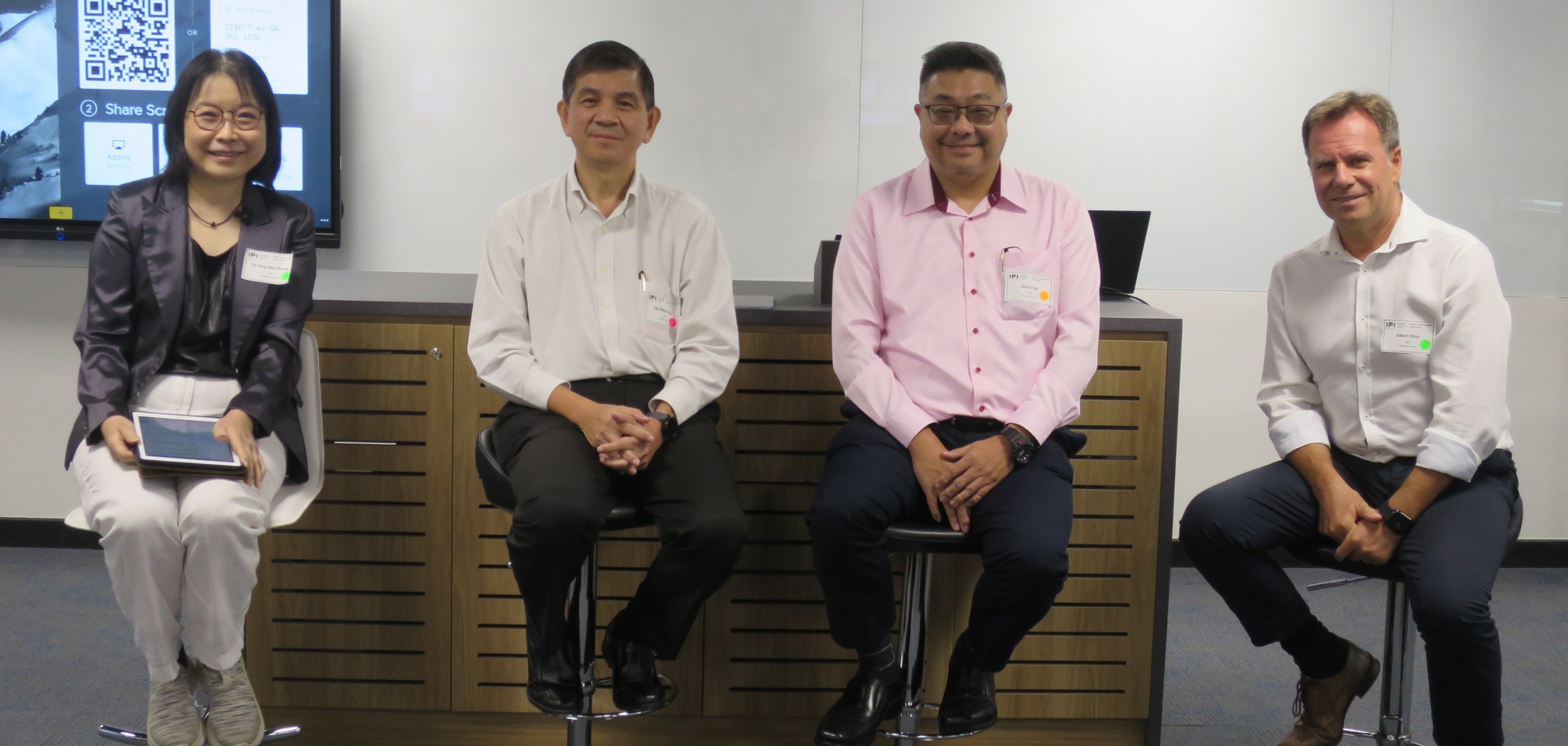At the Digital Transformation through Industry 4.0 workshop, IPI experts came together to share their valuable expertise with attendees across health, logistics and food industries.
From simple stone tools to the digital realm—technology has long been the catalyst of global economic and societal transformations. Today, organisations, governments and businesses remain intent on pushing the boundaries of tech. In fact, digital transformation has become integral for companies to stay competitive in a globalised world that is increasingly shaped by data and connectivity. Such transformation is particularly relevant in a tech-driven smart nation like Singapore.
However, adopting new technologies and strategies is no easy feat. To address some common challenges faced by businesses, IPI organised a “Digital Transformation through Industry 4.0” workshop held on 14 September 2022, which aimed to direct local businesses towards sustainable transformative practices.
The event began with a panel discussion that discussed the Singapore Smart Industry Readiness Index (SIRI), a three-part framework designed to ensure inclusive digital transformation across industries and companies. Panellists included seasoned industry and technology leaders Tay Beng Hwee, Derek Tan, and Albert Pozo, and was moderated by Innovation and Transformation Consultant for the FMCG and food industry, Dr. Ong Mei Horng. To enable attendees to contextualise the information, the panel was followed by breakout sessions which tackled specific business challenges in the food, healthcare, and the logistics and supply chain sector.
Transformation with a purpose
Running a business can be unpredictable and every move requires precision. In her opening speech, Dr. Ong stressed the importance of distinguishing three concepts that have been used interchangeably in media and in business: digitisation, digitalisation, and digital transformation.
“When we talk about digital transformation, it’s not just buying the technology for the process. It’s important to shape the organisation—to develop the people and ensure they are future-ready,” she explained.
Digital transformation, she stated, involves a top-down organisational embrace towards digital practices. More importantly, such a transformation is a step-by-step process and must be grounded in your business goals. According to Dr. Ong, this is where the SIRI framework can help. By outlining three core building blocks for digital transformation—process, technology, and organisation—businesses can adopt technology in a more sustainable manner.
The key, according to Tay , is to understand your purpose and core competencies as a business. This can be done through a Value Stream Map, which can ultimately guide you in determining how you can optimise your digital investments.
“There are lots of technologies out there. But is it suitable for your purpose?” he shared. “The process map will help guide the choices you are making by identifying what distinguishes your business and how you want to use technology to stand out.”
Setting expectations
A strong theme across the panel discussion was the emphasis on the role that organisation culture plays in sustaining digital transformation. For instance, fostering a culture of innovation in a company may help eliminate anxieties about technological change.
“You need to be ready as an organisation to implement changes that will make you stop doing some things,” urged Pozo. “People should not feel at risk because of things you stop, they should see them as an opportunity for added value.”
The SIRI framework, according to Dr. Ong, also considers the organisation’s talent readiness and its structure and management. Successful digital transformation, she said, does not just stop at the level of the CEO, it requires collaboration both within and outside your company. Similarly, Tay and Tan advocated for company leaders to consider customers and informal or external talents when making business decisions regarding the use of technology.
Pozo argued that it is also important for company leaders to be competitive and critical at all times. Not only do they need to communicate the purpose of digital transformation all the way to the customer, but they must also recognise that digital transformation is a continuous investment, not just a one-time move.
Navigating each sector
The breakout rooms allowed participants from various sectors to share their specific issues regarding Industry 4.0 and consult the innovation advisors. In the food sector, a common challenge experienced by enterprises is the slow client adoption of digital practices.
One company, that produces poultry, eggs and livestock feed in Southeast Asia, reported that it was difficult to entice hawkers and wet markets to transition to cashless options. “You can't expect them to immediately adopt electronic invoicing,” Pozo admitted. However, there is value in meeting the clients in the middle where companies must facilitate a gradual transformation. He recommended adopting semi-cashless options like using Industry 4.0 technologies, such as natural language processing in Whatsapp, to introduce customers to the idea.
On the other hand, the healthcare and logistics sector breakout rooms, led by Tay and Tan respectively, discussed the intricacies of system integration and digital planning. At the logistics session, Tan encouraged companies to use technology to disrupt the ecosystem, citing successful examples like the iPhone. He also stressed that companies should be mindful of the ecosystem’s readiness for such technology, entailing the need for effective communication of value proposition to the customers.
During the healthcare session, Tay addressed the individual questions of attendees and advised bringing in an external consultant that is familiar with digitalisation and able to help the company make difficult decisions.
“Events like these can connect people who have different experiences and allow them to build their network,” shared Pozo. “By including industry experts, IPI introduces an additional perspective outside of the industry and region to learn from experiences happening elsewhere as well.”

